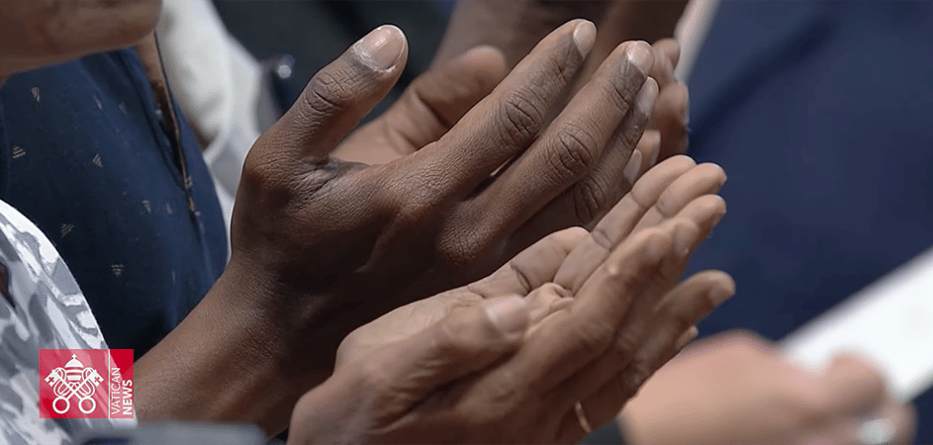Pope Francis has given a tall order to the Church today. He’s called the Church to be a family and not a private club, a garden rather than a museum, and a field hospital in the midst of the human family. The pope’s call is not his own.
It is an echo of the Lord Jesus’ own summons to the Church to care for humanity and to share the Good News.
The pope however is using his own symbolic language to emphasize the Lord’s call and has the difficult task of applying such a summons to a contemporary state of affairs. And so, Pope Francis has challenged almost every area of the Church’s life, and such a series of challenges is an invigorating invitation to renewal and re-direction.
Where will this invitation go? Will the mantle of renewal be picked up and lived out in the Church?
Here’s the bottom line: The acceptance and living out of the invitation will depend on the parish. The Catholic Church is universal and is constituted as a hierarchical communion. As such, it is made up of dioceses as “local churches” throughout the world. Each local church consists of parishes as particular communities of believers.
Every Catholic believer in the world belongs to a parish of one form or another. This local community is the heart of the Church. This is where things happen (or not). It’s the crucible and forum of the Church’s life, and is a sober reflection of what the Church really is (or is not) in a specific place.
And so, while compelling vision, symbolic language, and tall orders by leadership are needed in the Church, they either develop or dissolve, rise or fall in the parish community.
The peculiar word “parish” comes from a Greek word which is loosely translated as “colony.” As such, the parish is expected to be a colony of God’s kingdom and its life should reflect God’s love, acceptance, mercy and peace.
A popular quote currently floating around Christian circles, and oddly attributed to several different members of the clergy in diverse traditions, tells the community of believers: “We are called to be fishers of men, and not care takers of an aquarium.”
The quote is a great rallying cry to the parish community and reflects the renewal hoped for by Pope Francis.
The vision of the quote is inspiring, but its provocation has to be understood within context. Someone has to care for the aquarium and it’s not easy. Aquarium care involves changing the water, keeping things clean, making sure the fish get along, etc.
By application, the priest and people of an average parish in the United States have to care for the upkeep of a campus and its facilities, the reservation of those facilities among its different groups, landscaping, parking and the spacing of events (not to be underestimated), the scheduling of liturgical ministers, the selection of music, making the weekly operating budget, resolving parish personnel issues, completing the weekly bulletin, updating the parish website, etc., etc.
There’s a lot of work involved in taking care of a parish, and this example didn’t include a parish school.
Addressing such practical tasks can stretch the clergy and people of a parish, but more is needed if outreach is going to happen. To the degree that parish communities hear the call to be fishers of men – families, gardens, and field hospitals – and are willing not only to care for the aquarium but move outside it is the degree to which the real work of outreach and service will happen in the universal Church.
Put in another way: Will the parish community be just a maintenance shop or will it become a mission center?
In order to have the energy and strength to be a mission center, the parish will need members who are intentional in their discipleship, a delegation among ministries, prophetic vision among the pastoral leadership, and a communally shared understanding and acceptance of the parish’s mission. Laboring to achieve these conditions should be the real work in the trenches of Catholic life.
As parishes begin to see themselves as mission centers and fishers of men, there is as much focus (or more) on adult faith formation as the sacramental programs for children. Welcoming ministries flourish, social outreach and the works of mercy become the norm of parish life, and methods of evangelization in the family, in neighborhoods, and among friends are taught and nurtured.
In addition, collaboration with other Christian communities and civic organizations and groups are understood as a necessary starting point, preferential and compassionate outreach to certain groups, such as to immigrants, the divorced and remarried, people with special needs and their families, the gay community, etc., are seen as a required service and engagement with people made in God’s image.
This is the invitation and mantle offered to the parish community. It is the vision hoped for and preached by Pope Francis.
If accepted and lived in the parish, it will be the vision that allows the Church to be a credible witness of truth, beauty, and goodness in our world today.


















